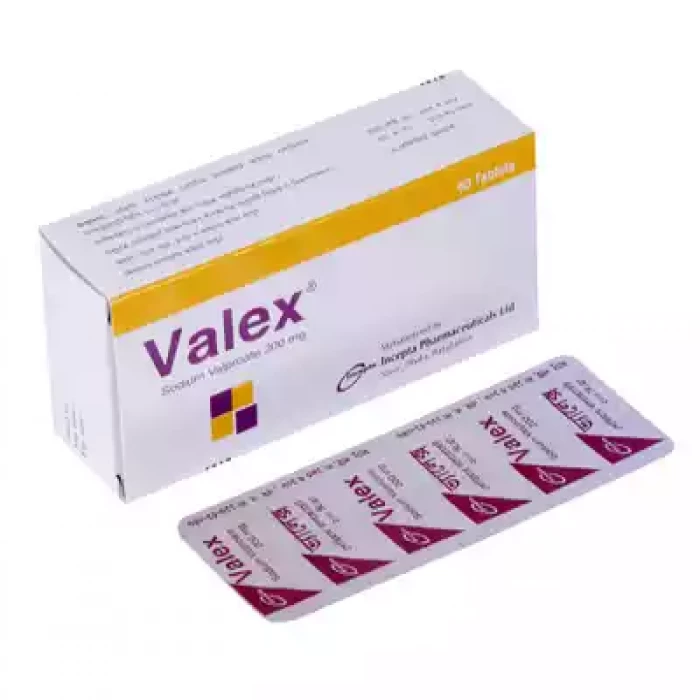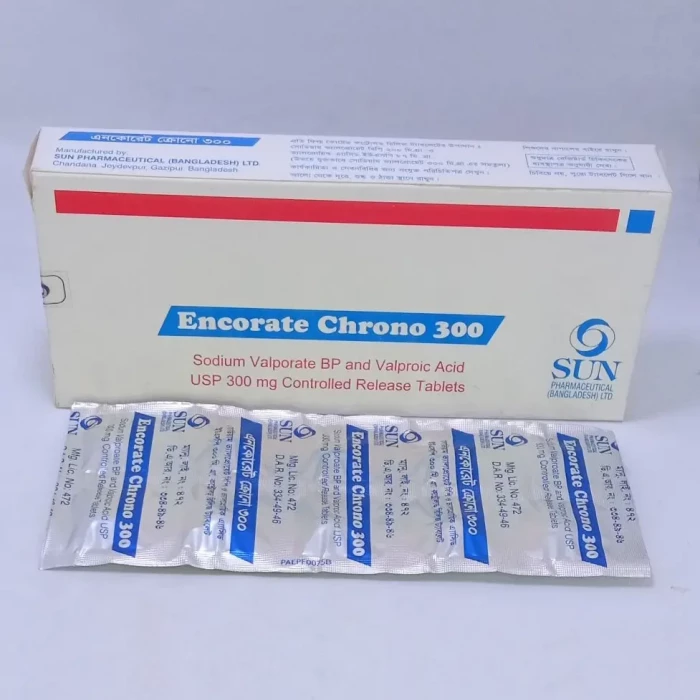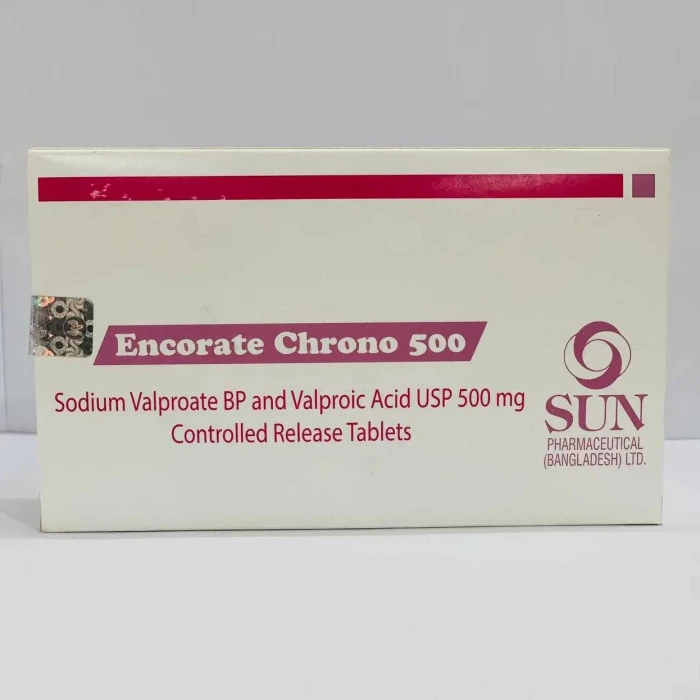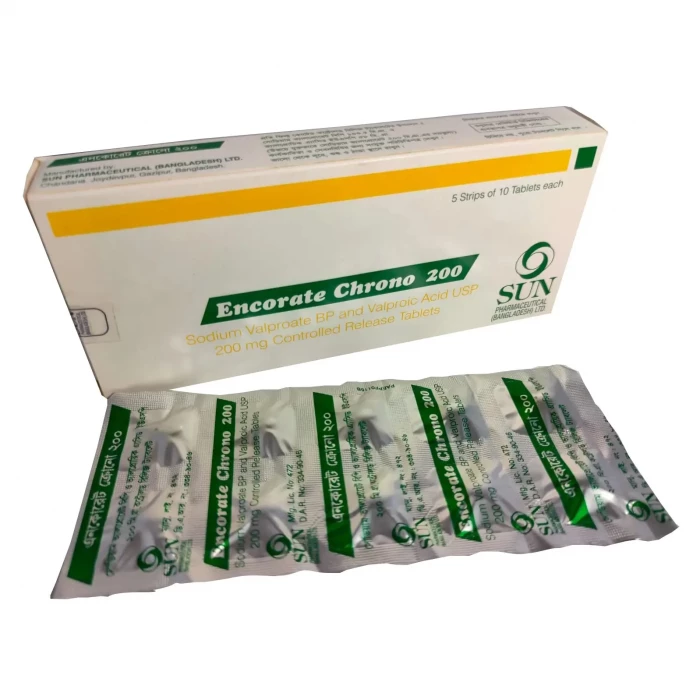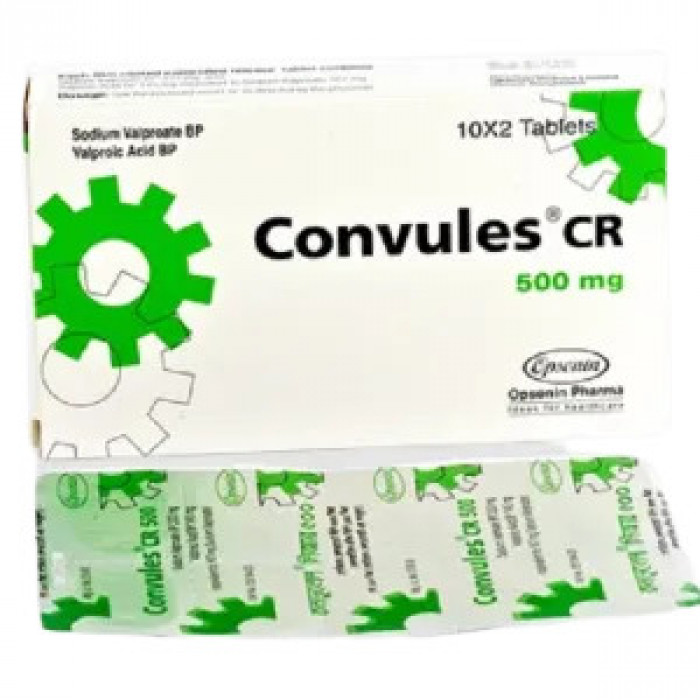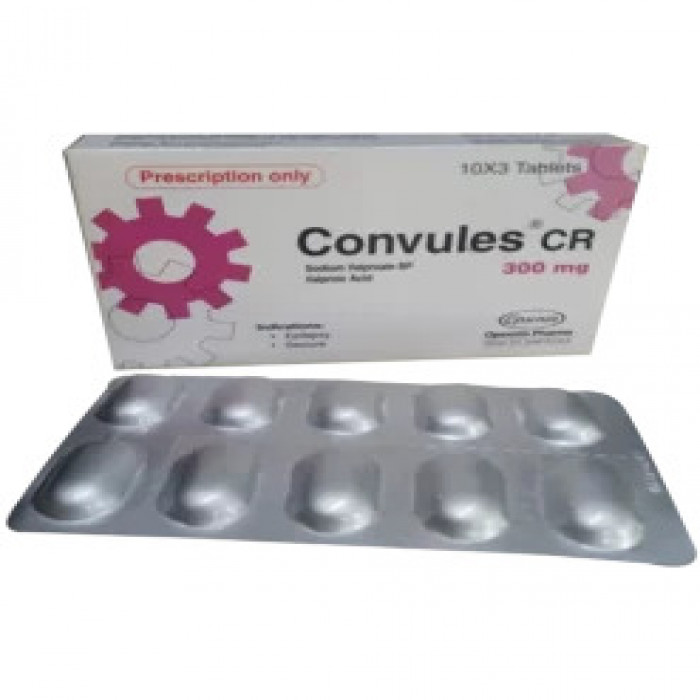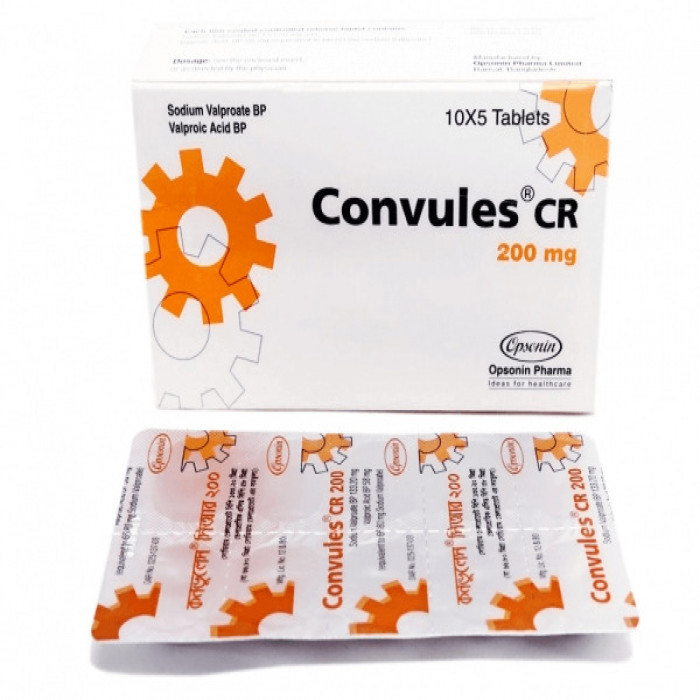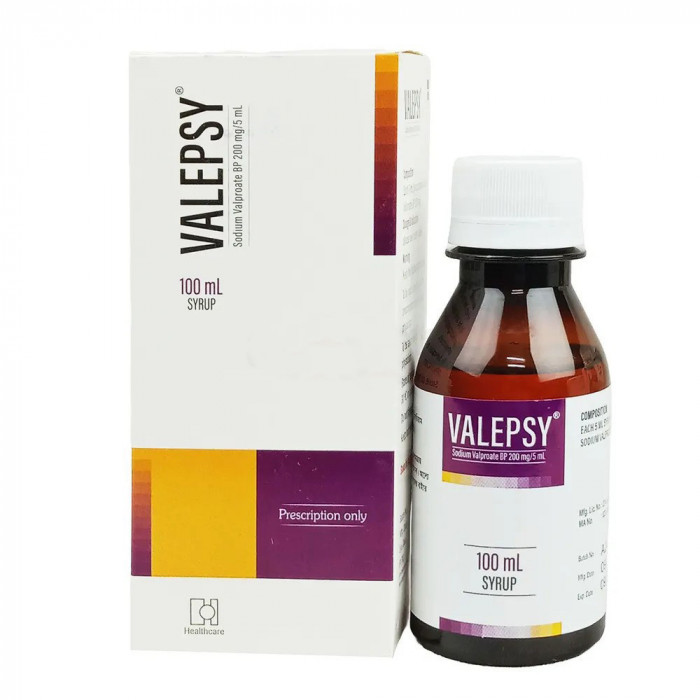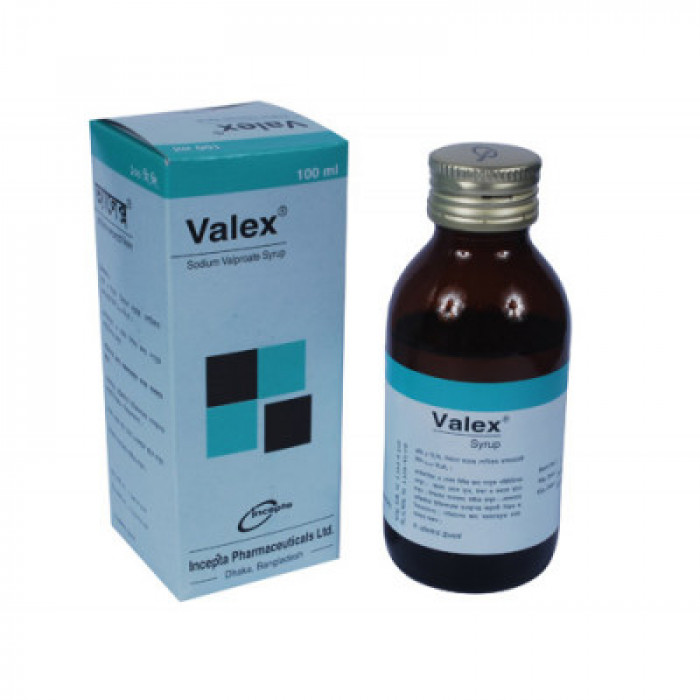
✔ 100% Authentic Product
👁️ Currently Viewing 3015
Valex Syrup 100ml
Syrup, Generic Name: Sodium Valproate, Manufacturer: Incepta Pharmaceuticals Ltd.
Discount
Price: ৳ 95
MRP:
৳
100
5%
Off

100% Genuine Products, Guaranteed

Safe & Secure Payments, Always

Fast, Secure & Efficient Delivery

Proper Packaging
 Cash on Delivery - All over Bangladesh
Cash on Delivery - All over Bangladesh Regular Delivery - 12-24 Hours, Dhaka City* Charge Tk.39-59
Regular Delivery - 12-24 Hours, Dhaka City* Charge Tk.39-59 Regular Delivery - 24-48 Hours, Other Cities* Charge Tk.99-110
Regular Delivery - 24-48 Hours, Other Cities* Charge Tk.99-110
🌙 রমযান অফার 🌙
 ফ্রি ডেলিভারিঃ - ৭৯৯ টাকা+ অর্ডারে, ঢাকা
শহরে
ফ্রি ডেলিভারিঃ - ৭৯৯ টাকা+ অর্ডারে, ঢাকা
শহরে ফ্রি ডেলিভারিঃ - ২৭৯৯ টাকা+ অর্ডারে, ঢাকার
বাহিরে
ফ্রি ডেলিভারিঃ - ২৭৯৯ টাকা+ অর্ডারে, ঢাকার
বাহিরে
📲 মোবাইল অ্যাপ অর্ডারে সাশ্রয় বেশী
-
Google Play Store থেকে ডাউনলোড
-
Apple Store থেকে ডাউনলোড
100% Genuine Products, Guaranteed
Safe & Secure Payments, Always
Fast, Secure & Efficient Delivery
Proper Packaging
 Cash on Delivery - All over Bangladesh
Cash on Delivery - All over Bangladesh Regular Delivery - 12-24 Hours, Dhaka City* Charge Tk.39-59
Regular Delivery - 12-24 Hours, Dhaka City* Charge Tk.39-59 Regular Delivery - 24-48 Hours, Other Cities* Charge Tk.99-110
Regular Delivery - 24-48 Hours, Other Cities* Charge Tk.99-110 ফ্রি ডেলিভারিঃ - ৭৯৯ টাকা+ অর্ডারে, ঢাকা
শহরে
ফ্রি ডেলিভারিঃ - ৭৯৯ টাকা+ অর্ডারে, ঢাকা
শহরে ফ্রি ডেলিভারিঃ - ২৭৯৯ টাকা+ অর্ডারে, ঢাকার
বাহিরে
ফ্রি ডেলিভারিঃ - ২৭৯৯ টাকা+ অর্ডারে, ঢাকার
বাহিরে- Google Play Store থেকে ডাউনলোড
- Apple Store থেকে ডাউনলোড
🌙 রমযান অফার 🌙
📲 মোবাইল অ্যাপ অর্ডারে সাশ্রয় বেশী
✅ Description:
Indications
Valex is indicated for the treatment of all types of epilepsy, e.g. Partial seizures, Absence seizures (petit mal), Generalized tonic-clonic seizures (grand mal), Myoclonic seizures, Atonic seizures, Mixed seizures that include absence attack, Prophylaxis of febrile convulsion, Prophylaxis of post-traumatic epilepsy. It is also indicated in the treatment of bipolar disorder & prophylaxis of migraine.
Pharmacology
The primary component in this formulation, sodium valproate, has anti-epileptic properties and can be used to treat a variety of seizures. The mechanism through which Sodium Valproate works as an anti-epileptic has yet to be discovered. However, it has been proposed that its action is linked to increased gamma-aminobutyric acid levels in the brain (GABA).
Dosage & Administration
Sodium Valproate tablets may be given once or twice daily. Sodium Valproate syrup should be given in divided doses.
Epilepsy-
Adults: Initially 600 mg daily given in 2 divided doses, preferably after food, increasing by 200 mg/day at 3-day intervals to a maximum of 2.5 g daily in divided doses until control of seizure is achieved. Usual maintenance dose is 1-2 g daily (20-30 mg/kg daily)
Children (up to 20 kg): Initially 20 mg/kg daily in divided doses, may be increased provided plasma concentrations monitored (above 40 mg/kg daily also monitor clinical chemistry and hematological parameters).
Children (over 20 kg): Initially 400 mg daily in divided doses increased until control (usually in the range of 20-30 mg/kg daily) Maximum 35 mg/kg daily.
Febrile convulsion: 20-30 mg/kg/day in 3 divided doses.
Bipolar disorder: Initially 20-30 mg/kg/day in 2-3 divided doses; adjust dosage in 3-5 days. Maintenance dosage is 1000-2000 mg/day.
Prophylaxis of migraine: 300 mg twice daily, although some may require 1000 mg daily.
Interaction
Sodium vaiproate appears to impede drug metabolism in a non-specific manner. Phenobarbital, Phenytoin, Warfarin, Aspirin, and other drugs with which it interacts the most are Phenobarbital, Phenytoin, Warfarin, and Aspirin.
Contraindications
Patients with documented hypersensitivity to the medication as well as liver disease should avoid sodium valproate. Sodium Valproate is not recommended for use during pregnancy or in women who may become pregnant.
Side Effect
Anorexia, nausea, and vomiting are the most prevalent adverse effects. The usage of enteric coated pills, on the other hand, reduces these adverse effects. Sedation, ataxia, and tremor are all CNS side effects. These symptoms are uncommon and usually respond to a dose reduction. Rash, baldness, and hunger stimulation have all been reported on occasion. Sodium vaiproate has a number of impacts on hepatic function, including an increase in liver enzymes in plasma in up to 40% of patients, which frequently happens asymptomatically during the first few months of treatment.
Pregnancy & Lactation
Sodium vaiproate passes the placenta, and in humans, first-trimester valproate exposure has been linked to neural tube abnormalities including anencephaly and spina bifida in newborns. Pregnant women using Sodium Vaiproate should have their blood a-fetoprotein levels measured. Breast milk excretes sodium valproate. Breast-feeding by a mother taking Sodium Valproate, on the other hand, is unlikely to harm the kid.
Precautions & Warnings
Liver function should be checked before starting treatment and during the first six months, especially in individuals who are most at risk. Before beginning and before major surgery, there must be no unnecessary risk of bleeding. Renal impairment, pregnancy, breast-feeding, and systemic lupus erythematosus all require caution. Because sodium valproate is partly removed in the urine as a ketone metabolite, the urine ketone test may be misinterpreted. The abrupt cessation of therapy should be avoided. Sodium Valproate should not be taken during pregnancy or by women who are planning to have children.
Therapeutic Class
Primary anti-epileptic drugs
Storage Conditions
Store in a cool and dry place, below 30 °C and keep away from light.
⚠️Disclaimer:
At ePharma, we’re committed to providing accurate and accessible health information. However, all content is intended for informational purposes only and should not replace medical advice from a qualified physician. Please consult your healthcare provider for personalized guidance. We aim to support, not substitute, the doctor-patient relationship.




